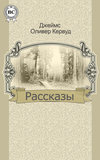Читать книгу: «The Great Lakes.The Vessels That Plough Them»
Preface
In this volume, it has been my object to tell of the people and of the picturesque life of the Great Lakes, and to set before my readers actual facts about the cities, the commerce, and the future of the greatest fresh-water seas in the world. For some unaccountable reason, the Great Lakes, notwithstanding the fact that more than thirty million people live in the States bordering their shores, and in spite of the still more remarkable fact that they are doing more than anything else on the American continent for the commercial progress of the nation, have been almost entirely neglected by writers. To-day there are but few people who know that one of the three greatest ports and the largest fleet of freighters in the world are on these unsalted waters; and I mention the fact in this particular place simply to bring home to the casual reader how little is known by the public at large about our Inland Seas. For this reason, I have not dealt with any single side of Lake life, but have attempted to present as many phases of it as I could; and, for the same reason, I have added a brief historical account of the Lakes at the end of the book. It has been my desire, too, that these pages, from the beginning, should prove of especial value to those many thousands all over the world who are, or may in the future be, directly interested in the Lakes in a business way; and a great deal of attention has, therefore, been given to the commercial side of my subject – statistics and facts regarding Lake commerce, the opportunities of the present day, and a forecast of what the coming years hold in store for the men who have investments, or who plan to invest in business enterprises, on or about the Great Lakes.
While dwelling upon the importance of the commercial life of the Inland Seas, I wish also to emphasise the fact that I have kept always in mind another large class of people who are keenly interested in my subject, though not from a commercial standpoint. The present volume is designed to interest this latter class by portraying another side of Lake life – the human side, the romance and the tragedy that have played their thrilling parts upon these waters; the wonders of their progress; the story of their ships, their men, their wars, for of all the pages in the history of the North American continent none are more thrilling, or more filled with the romantic and the picturesque, than those which tell the story of our fresh-water seas.
In conclusion, I wish to say that I owe a great debt of gratitude to the scores of Lake “owners,” ship-builders, and captains who have aided me, in every way possible, in the preparation of this volume, and without whose personal co-operation the writing of it would have been impossible.
J. O. C.Detroit, Michigan, 1909.
PART I
The Ships, their Owners, their Sailors, and their Cargoes
I
The Building of the Ships
Not long ago, I was on a Lake freighter pounding her way up Huron on the “thousand-mile highway” that leads to Duluth. Beside me was a man who had climbed from poverty to millions. He was riding in his own ship. His interests burned ten thousand tons of coal a year. He was one of the ore kings of the North – as rough as the iron he dug, filled to the brim with enthusiasm and animal energy of the Lake breed; a man who had helped to make the Lakes what they are, as scores of others like him have done. Before and behind us there trailed the smoke of a dozen of the steel leviathans of the Inland Seas. I had asked him a question, and there was the fire of a great pride in his eyes when he answered.
“It would make a nation by itself – this Lake country!” he said. “And it would be America. It’s America from Buffalo to Duluth, every inch of it, and the people who are in it are Americans. That’s American smoke you see off there, and American ships are making it; they’re run by a thousand or more American captains, and they’re Americans fore ’n’ aft, too. We’ve got only eight States along the Lakes, but if we should secede to-morrow the world would find us the heart and power of the nation. That’s how American we are!”
This is the patriotism one finds in the Lake country, from the roaring furnaces of the East to the vast ore beds of Minnesota. It is representative of the spirit that rules the Inland Seas; it is this spirit that has built an empire, and is building a vaster empire to-day, along the edges of the world’s greatest fresh-water highways.
With more than thirty-four millions of people living in the States bordering on them, possessing one third of the total tonnage of North America, and saving to the people of the United States five hundred million dollars each year, or six dollars for every man, woman, and child in the country, one of the most inexplainable mysteries of the century exists in the fact that the Great Lakes of to-day are as little known to the vast majority of Americans as they were a quarter of a century ago. While revolutions have been working in almost all lines of industry, while States have been made and cities born, America’s great Inland Seas have remained unwatched and unknown except by a comparative few. Upon them have grown the greatest industries of the nation, yet the national ignorance concerning them can hardly find a parallel in history. Were they to disappear to-morrow the industrial supremacy of the republic would receive a blow from which it could never recover. The steel industry, as a dominant commercial factor, would almost cease to exist. One half of the total population of the country would be seriously affected, and America would fall far behind in the commercial race of the nations.
Notwithstanding these things, not one person in ten knows what the Great Lakes stand for to-day. While a thousand writers have sung of the greatness and romance of the watery wastes that encircle continents, none has told of those “vast unsalted seas” which mean more to eighty-five millions of Americans than any one of the five oceans. What has been written has been for those who find their commerce upon them; for the owners of ships and the masters of men; for the kings of ore and grain – a little statistical matter here and a little there, but nothing for the millions who are not at hand to feel the pulse of traffic or to see the great commercial pageant as it passes before their eyes. Even of those who live in the States bordering the Great Lakes but few know that these fresh-water highways of traffic possess the greatest shipping port in the world, that upon them floats the largest single fleet of freighters in existence, that in their great construction yards shipbuilding has been reduced to a science as nowhere else on earth, and that in their life the elements of romance and tragedy play their parts even as on the big oceans that divide hemispheres.
In a small way the general lack of knowledge of the Great Lakes is excusable, for their development has been so rapid and so stupendous that people have not yet grasped its significance. Within the last quarter of a century or less they have become the industrial magnets of the nation. Along their shores have sprung up our greatest cities, with populations increasing more rapidly than those of New York, Boston, Philadelphia, or San Francisco. In the eight States which have ports on them is more than one third of the total population of the North American continent. Along their three thousand three hundred and eighty-five miles of United States shore line will be built this year more than one half of the tonnage constructed in America, and over their highways will travel at least six times as much freight as all the nations of the world carried through the Suez Canal in 1908.
Just what this means it is hard for one to conceive when told only in figures. Perhaps in no better way can the immensity and importance of their traffic be described than by showing briefly one of the ways in which they earned a “dividend” of six dollars for every person living in the United States in 1907. This immense “dividend” did not go into the coffers of corporations, but actually, though indirectly, into the pockets of the people.
It is only fair to the Lakes and the vast interests upon them to use the figures of 1907 instead of those of 1908. In the following pages it is the author’s intention to paint conditions as they actually exist upon our Inland Seas under normal conditions. During 1908, the financial depression that swept over the entire country produced conditions upon the Lakes which, in the author’s opinion, will not be seen again for a great many years to come. “Panic figures” give a wrong impression. Those of 1908 would show a falling off of business in various branches of Lake traffic of from twenty to sixty per cent. As one of the best known vessel-men in Duluth said to me recently, “We can count that the Lakes have lost just one year of progress because of the panic.” In other words, it is highly probable that the business of the Lakes will in this year of 1909 be just about what it should have been under normal conditions in 1908, and there are many who believe that within the next two years the loss of the “panic year” will be more than discounted.
For this reason, in order to show how the Lakes earn their tremendous dividend for the people of the United States, we use the figures of 1907, when traffic was normal. In that year, for instance, it cost a little over ten cents to ship a bushel of grain from Chicago to New York by rail, and only five and one half cents by way of the Lakes and the Erie Canal. This saving on transportation of five cents a bushel is divided between the producing farmer and the consuming public. It is a “nickel on which no trust can place its hands” – and this nickel, when multiplied by the number of bushels of grain produced in Ohio, Illinois, Indiana, Wisconsin, Iowa, and Michigan, reaches the stupendous figure of ninety-eight million dollars! In the matter of iron ore the saving is still greater. Were it not for this saving all steel necessities, from rails to common kitchen forks, would advance tremendously in price, and the United States would not be able to control the steel markets of the world. To-day you can ship a ton of ore from Duluth to Ashtabula, Conneaut, or Cleveland, a distance of nearly one thousand miles, for less than you can send by rail that same ton from one of these ports to Pittsburg, a distance of only one hundred and thirty miles. In other words, while it costs about eighty cents to send a ton of ore from the vast ranges of the North to an Erie port by ship, the rail rate is seven times greater, which means that the vessels of the Great Lakes saved in 1907 on ore alone no less than one hundred and seventy-three million dollars!
In another way than in this annual saving in cost of transportation are the Lakes fighting a great and almost unappreciated battle for the people. They are to-day the country’s greatest safeguard against excessive railroad charges. They are the governors of the nation’s internal commerce, and will be for all time to come. There is not a State north of the Ohio River and east of the Rocky Mountains which is not affected by their cheap transportation, and the day is not distant when hundreds of millions of bushels of grain raised in the Canadian west will go to the seaboard by way of the lake and canal route. At the present time there are about two hundred and forty thousand miles of railroad in the United States, constructed and equipped at a cost of more than thirteen billion dollars; yet, on the basis of ton miles, the traffic on the Lakes will in 1909 be one sixth as great as on all the roads in the country.
These facts are given here to show in a small way the gigantic part the Great Lakes are playing to-day in the industrial progress of the nation. Yet, as paradoxical as it may seem, the nation itself has hardly recognised the truth. The “helping” hand that the Government has reached out has been pathetically weak. In history to come it must be recorded that great men – men of brain and brawn and courage – have “built up” the Lakes, and not the Government. And these men, scores and hundreds of them, are continuing the work to-day. Since the dawn of independence to the present time, the United States has expended for all harbours and waterways on the Great Lakes above the Niagara Falls less than ninety million dollars, yet each year this same Government hands out one hundred and forty million dollars to the army and navy and one hundred and twenty-seven million dollars to the postal service! In the face of this is the astonishing fact that, in 1907, the saving in freight rates on Lake Superior commerce alone exceeded by a million dollars the total sum expended by the Government on the Inland Seas since the day the first ship was launched upon them!
In this building of the “greater empire” of the Lake country there is now no rest. Wherever ships are built the stocks are filled. From the uttermost end of Erie to the shipyards of the north – in Buffalo, Lorain, Cleveland, Toledo, Detroit, West Superior, Chicago, and Manitowoc – the making of American ships is being rushed as never before. In the larger yards powerful arc-light systems allow of work by night as well as by day. The roaring of forges, the hammering of steel, the tumult of labouring men, and the rumbling of giant cranes are seldom stilled. With almost magical quickness a ten-thousand-ton monster of steel rises on the stocks – and is gone. Another takes its place, and even as they follow one another into the sea, racing to fill demands, there still comes the cry: “Ships – ships – we want more ships!”
In the year 1908, it is estimated that very nearly three fifths of the total ship tonnage built in the United States was constructed in these busy yards of the Great Lakes. As early as January they were choked with orders for 1908 delivery, and even that early a number of them had orders running well into 1909. A brief glance at the vessel construction of the Lakes during the six years up to and including 1907 will give a good idea of the rapid growth of this industry along the Inland Seas. In 1902, the product was forty-two vessels, thirty-two of them being bulk freighters. In 1903, forty-two of the fifty vessels built were bulk freight steamers, with a carrying capacity of 213,250 tons. In 1904, the output was only thirteen vessels, but in 1905 twenty-nine bulk freighters with a carrying capacity of 260,000 tons were built. In 1906, there were turned out from the Great Lakes yards forty-seven vessels, of which forty were bulk freighters, and in 1907, the total was fifty-six vessels, including forty bulk freighters, three package freighters, and one passenger steamer. The early months of 1908 saw contracts in force for the construction of twenty-five bulk freighters for delivery before 1909.
Taking the forty bulk freighters built in 1907, one gets a fair idea of the immensity of Lake traffic. They are but a drop in the bucket – a single year’s contribution to the great argosies of the Inland Seas; yet these forty ships have a carrying capacity of three hundred and sixty thousand tons. In other words, within four days after loading at Duluth they could be discharging this mountain of ore at Erie ports. To carry this same “cargo” by rail would require over three hundred trains of thirty cars each, or a single train seventy miles in length!
But this is not particularly astonishing when one is studying the commerce of the Great Lakes. True, it represents considerably over a half of the tonnage built in the United States during 1907, but even at that it “isn’t much to shout about,” as one builder of ships said to me. These men of the Lakes never express surprise at the wonders of the Inland Seas. They are used to them. They meet with them every day of their lives. On either coast these same “wonders” would be made much of. But the Lake breed is not the breed that boasts – unless you drag opinions from them. Why, over in Cleveland there is one man who directs the destinies of twice as many ships as the forty-eight mentioned above – a single commercial navy that can move six hundred and forty-eight thousand tons of ore in one trip, or enough to “make up” a train of sixteen thousand two hundred cars, which train would be one hundred and twenty miles in length! This man’s name is Coulby – Harry Coulby, President and General Manager of the Pittsburg Steamship Company, Lake arm of the United States Steel Corporation. There was a time when Coulby was a poor mechanic, working his ten hours a day. Then he developed “talent” and went into a shipyard draughting-room. Now he is undeniably the king of Lake shipping. His word is law in the directing of more than a hundred vessels, the greatest fleet in the world; and it is law in other ways, for it is common talk in marine circles that he (with the trust behind him) is responsible for nearly every important move on the Great Lakes. He is the eye and the ear and the mouth of the trust, and it is the trust that practically fixes the ore rates for each season, and does other things of interest. If these ships of Coulby’s were placed end to end they would reach a distance of eight miles! During the eight months of Lake navigation they can transport as much freight over the “thousand-mile highway” as the combined fleets of all nations take through the Suez Canal in twelve! Yet who has heard of Coulby? How many know of the gigantic fleet he controls? A few thousand Lake people, and that is all. A magnificent illustration is this of the national ignorance concerning the Great Lakes.
And Coulby is only one of many. The fleet he controls is only one of many. The Lakes breed great men – and they breed great fleets. How many of our millions have heard of J. C. Gilchrist and the Gilchrist fleet? – a man in one way unique in the marine history of the world, and a fleet which, if plying between New York and Liverpool, would be one of the present-day sensations. Gilchrist, like Coulby, “worked up from the depths,” and to-day, as the head of the Gilchrist Transportation Company, he holds down seventy-five distinct jobs! Seventy-five owners have placed seventy-five ships under his generalship, and from each he receives a salary of one thousand dollars a season, or a total of seventy-five thousand dollars. He is one of the Napoleons of the Lakes. He handles ships and men like a magician; his holds are never empty; his dividends are always large. There was a day when one thousand dollars looked like a fortune to Gilchrist, and when eight dollars a week was an income of which he was mightily proud. That was when, from away down in Michigan, he turned his face northward toward the Lakes, filled with big ambition and a desire for adventure, but with little more than what he carried on his back. He got work as a sailor before the mast at forty dollars a month and board. From there he graduated to “bell hop” on a passenger steamer, and continued to graduate until the owners of great ships began to see in him those things which they themselves did not possess, and so handed over to him the destiny of the second greatest fleet of freight carriers in the world.
Such men as Coulby and Gilchrist and the ships they have would make the fame of any nation on the high seas. They and men like Captain John Mitchell, who is the head of a fleet of twenty ships, J. H. Sheadle, G. Ashley Tomlinson, and G. L. Douglas, are of the kind that are choking the Great Lakes shipyards with orders, while along the ocean seaboards stocks are rotting and builders of ocean marine are starving. Cleveland claims the headquarters of both of these immense fleets – and Cleveland is fortunate in many other things. She counts her strong men of the Lakes by the score. She is a great owner of ships, a great buyer of ships, and a great builder.
But when it comes to the production of “bottoms,” Cleveland and all other Lake cities must give way to Detroit. There was a day when Detroit was one of the important ports of the Lakes, but that day is long past. Now she is the centre of shipbuilding. In 1907, there was built at Detroit more tonnage than in any other city in the United States. Of the vessels launched, twenty-one of the largest took their first dip in or very near Detroit. The tonnage of these vessels aggregated over one half of the total tonnage of the forty freighters constructed for the season’s delivery.
It has been said that Detroit is a great shipbuilding city by accident, and there is a good deal of truth in the assertion. Six years ago the American Shipbuilding Company, the greatest trust of its kind in the world, held undisputed sway over the Lakes. It knew no competition. No combination of capital had dared to grapple with it. With eleven huge construction yards strung along the Lakes between Buffalo, Duluth, and Chicago, it held a monopoly of the shipbuilding industry. It was at this time that one of the country’s great industrial generals sprang up in Detroit. Then he was practically unknown; now as a leader and master of men, he is known in every city of this country where iron and steel are used. His name is Antonio C. Pessano. Detroit must always be proud of this man. He must count in the history of her future greatness, and always her citizens should be thankful that he and his indomitable courage did not first appear in Buffalo, Cleveland, or some other Lake city. Mr. Pessano’s ambition was to build at Detroit the most modern shipbuilding plant in the world. Some people laughed at him. Others pitied him. The trust twiddled its fingers, so to speak, and smiled. In the face of it all Mr. Pessano won the confidence of such Gibraltars of industrial finance as George H. Russel, Colonel Frank J. Hecker, Joseph Boyer, William G. Mather, Henry B. Ledyard, and others – won it to the extent of raising one million five hundred thousand dollars, with which he built the greatest shipbuilding yards on the Lakes and which have developed since then into the greatest in America, employing more than three thousand men.
Mr. Pessano’s shipbuilding rival is the president of the trust. His name is Wallace, “son of Bob Wallace, the elder,” Lake men will tell you, for Robert Wallace, the father, was a shipbuilder himself for a great many years. He is very proud of his boy.
“I had three boys,” said he. “Two of ’em went to college, but Jim he wanted an education, so he didn’t take much stock in books, but got out among men. That was what made Jim!”
To-day it is “Jim,” or James C. Wallace, of Cleveland, as he is better known, who is the champion shipbuilder of the world. He is President of the American Shipbuilding Company. Probably in no other part of the world is the romantic more largely associated with modern progress than on the Great Lakes, and in these two men – Wallace and Pessano – it is revealed in a singular way. Together they govern shipbuilding on the Inland Seas. Both of these great men began in the dinner-pail brigade. They worked in overalls and grease, not for “experience,” but because they had to; they pulled and heaved with common labourers; they rose, step by step, from the lowest ranks – and to-day, monuments to courage and ambition, they are the earth’s two greatest builders of ships. In a novel such characters would be declared almost impossible. But the Lakes breed such as these. There are others whose careers have been even more remarkable, and I will tell of these later – men whose rise from poverty to wealth and power rivals in romance and adventure the most glowing stories of the Goulds and Astors.
Mr. Pessano, “the independent,” does not entirely monopolise Detroit shipbuilding, for Wallace was there ahead of him with one of the trust’s big yards, which is known under the name of the Detroit Shipbuilding Company. It materially assists in the city’s greatness, and will continue to do so more and more each year. During 1907, it launched six big freighters in Detroit, and that city, together with eight other Lake cities, heaps blessings on the trust. For the trust is most generous and unprejudiced in its distribution of yards. It builds ships in one huge yard at Superior, in two at Chicago, two at Cleveland, and in one at Lorain, Buffalo, Wyandotte, Detroit, and Milwaukee. Among these cities it has distributed over fifteen million dollars in capital, and it is estimated that it affords a livelihood for between fifty and sixty thousand people. In 1907, the different yards built twice the tonnage of the next two largest shipbuilding concerns in the world combined – those of Doxford and Sons, of Sunderland, and Harland and Wolff, of Belfast, whose aggregate tonnage was not over one hundred and fifty thousand. The astonishing rate at which Lake shipbuilding is increasing is shown in the fact that the trust’s production for 1907 was twice that of 1905, which was 117,482 tons, divided among twenty vessels. A new factor has come into Lake shipbuilding which will count considerably in the future. This is the Toledo Shipbuilding Company, which purchased the Craig yards in 1906, and which has expended a great deal of money since that time in perfecting its plant, until now it has one of the most modern construction yards on the Lakes.
It would seem that this activity in Lake shipyards must soon supply demands, but such will not be the case for many years to come. While the depression of 1908 has cast its gloom, Lake men cannot see the end of their prosperity. They are in the midst of fortune-making days on the Inland Seas. To-day one of the steel ships of the Lakes is as good as a gold mine, and will continue to be so for a quarter of a century to come. The shipyards are growing each year, but the increase of tonnage is outstripping them, and until cargo and ships are more evenly balanced the owners of vessels on the Great Lakes must be counted among the most fortunate men in the world.
It is only natural that these conditions should have developed shipbuilding on the Lakes to a science unparalleled in any other part of the earth. I once had the good fortune to talk with a shipbuilder from the Clyde. He had heard much of the Lakes. He had built ships for them. He had heard of the wonders of shipbuilding in their cities. So he had come across to see for himself.
“I had thought that your ships would not compare with ours,” he said. “You build them so quickly that I thought they would surely be inferior to those of the Clyde. But they are the best in the world; I will say that – the best in the world, and you build them like magicians! You lay their keels to-day – to-morrow they are gone!”
This is almost true. A ten-thousand-ton leviathan of the Lakes can now be built almost as quickly as carpenters can put up an eight-room house. Any one of several shipyards can get out one of these monsters of marine commerce within ninety days, and the record stands with a ten-thousand-ton vessel that was launched fifty-three days after her keel was laid! One hardly realises what this means until he knows of a few of the things that go into the construction of such a vessel. Take the steamer Thomas F. Cole, for instance, launched early in 1907 by the Great Lakes Engineering Works. This vessel is the giant of the Lakes, and is six hundred and five feet and five inches long. She is fifty-eight feet beam and thirty-two feet deep, and in a single trip can carry as great a load as three hundred freight cars, or twelve thousand tons. In her are nine million five hundred thousand pounds of iron and steel! What does this mean? It means that if every man, woman, and child in Indiana, Michigan, Wisconsin, and Minnesota were to join in carrying this material to a certain place, each person would have to transport one pound. In the mass would be eight hundred thousand rivets, ranging in size from five eighths of an inch to one and one eighth inches in diameter.
One who is investigating Lake shipbuilding for the first time will be astonished to discover that the modern freighter is in many ways a huge private yacht. They are almost without exception owned by men of wealth, and their cabins are fitted out even more luxuriously than those of passenger boats, for while these latter are intended for the use of the public, the passenger accommodations of freighters are planned for the friends and families of the owners. So above the deck which conceals ten thousand tons of ore the vessel may be a floating palace. The keenest rivalry exists between owners as to who shall possess the finest ships, and fortunes are expended in the fittings of cabins alone. Nothing that money can secure is omitted. In the words of a builder: “The modern freighter is like a modern hotel – only much more luxuriously furnished.” There is an electric light system throughout the ship; the cabins are equipped with telephones; there is steam heat; there are kitchens with the latest cooking devices, elegantly appointed dining-rooms; there are state-rooms which are like the apartments in a palace, and other things which one would not expect to see beyond the black and forbidding steel walls of these fortune-makers of the Lakes.
With the first peep into modern methods one realises that the romantic shipbuilding days of old are gone. No longer does the shape, beauty, and speed of a vessel depend upon the eyes and hands of the men who are actually putting it together. For the ship of to-day is built in the engineering offices. In the draughting-room skilled men lay out the plans and make the models for a ship just as an architect does for a house, and when these plans are done they go to a great building which reminds one of a vast dance hall, and which is known as the “mould loft.” Seemingly the place is not used. Yet at the very moment you are looking about, wondering what this vacancy has to do with shipbuilding, you are walking on the decks of a ship. All about upon the floor, if you notice carefully, you will see hundreds and thousands of lines, and every one of these lines represents a line of the freighter which within three or four months will be taking her trial trip. Here upon the floor is drawn the “line ship” in exactly the same size as the vessel which is to be built. Over certain sections of this “line ship” men place very thin pieces of basswood, which they frame together in the identical size and shape of the ship’s plates. By the use of these moulds, or templates, the workman can see just where the rivet holes should be, and wherever a rivet is to go he puts a little spot of paint. These model plates are then numbered and sent to the “plate department,” where the real sheets of steel are made to conform with them and where the one million five hundred thousand or more rivet holes are punched. With the plates ready, the real ship quickly takes size and form.
Покупайте книги и получайте бонусы в Литрес, Читай-городе и Буквоеде.
Участвовать в бонусной программе




















